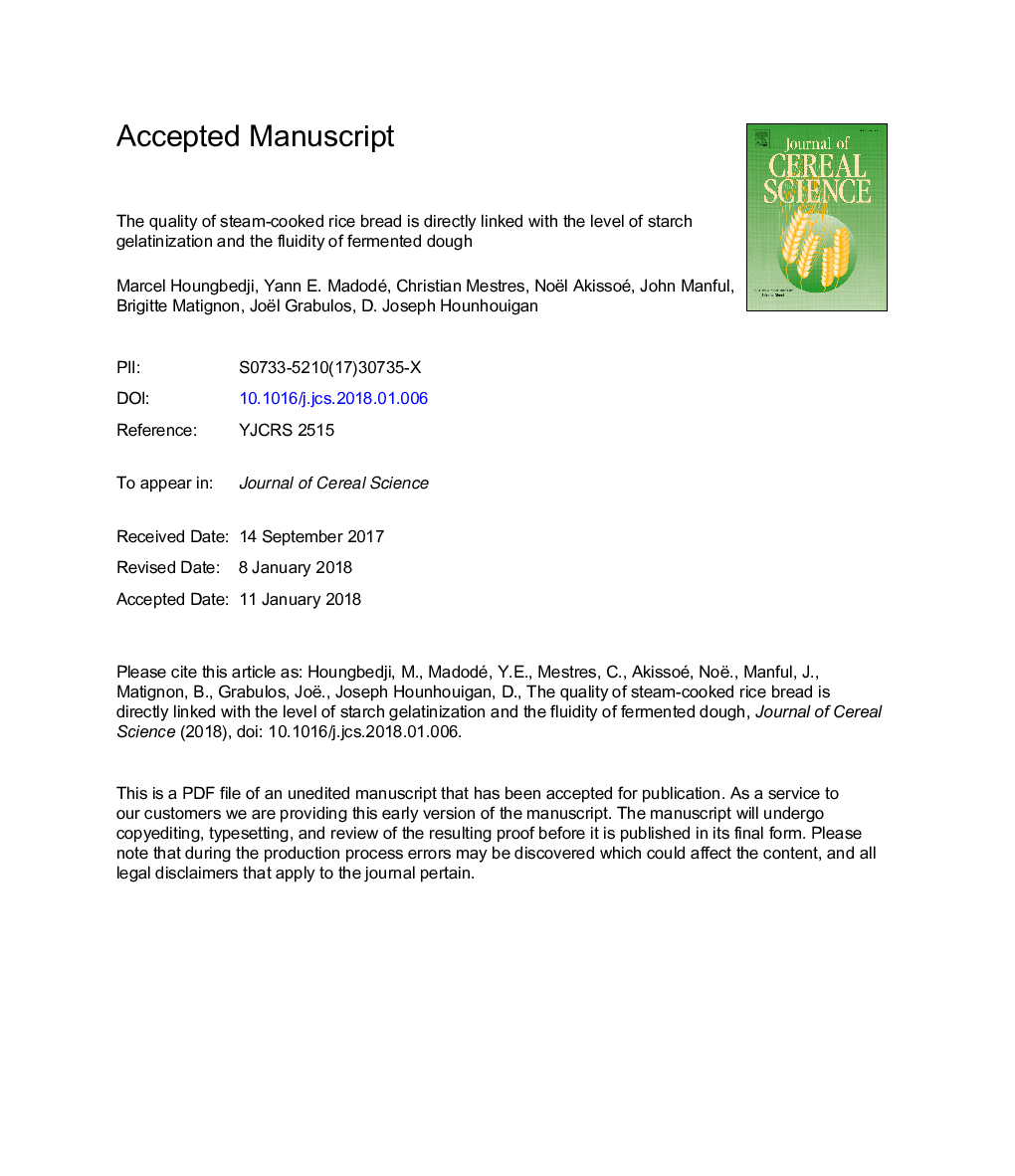| Article ID | Journal | Published Year | Pages | File Type |
|---|---|---|---|---|
| 8881353 | Journal of Cereal Science | 2018 | 33 Pages |
Abstract
Ablo is a rice or maize-based steam-cooked bread-like product, very popular in Benin, Togo and Ghana. This study optimized the processing steps of rice ablo using response surface methodology. The effect of precooking (proportions of flour and water, duration), kneading (wheat level, duration), fermentation (yeast level, temperature, duration) conditions to dough (gelatinization level, fluidity, proofing) and ablo (ethanol content, pH, density, cooking expansion, firmness, alveolar structure) properties were studied. It was demonstrated that ablo texture can be controlled by the fluidity of the fermented dough. Fluid fermented dough (at least 0.5â¯cm/s) expands adequately during steam-cooking and results in a less dense ablo in line with commonly consumed ablo. The optimal dough fluidity comes from a low gelatinization level of the precooked dough (less than 20%) and an intense fermentation (high yeast dose and long fermentation). Surprisingly, dough proofing appears to have no effect on final ablo expansion.
Related Topics
Life Sciences
Agricultural and Biological Sciences
Agronomy and Crop Science
Authors
Marcel Houngbédji, Yann E. Madodé, Christian Mestres, Noël Akissoé, John Manful, Brigitte Matignon, Joël Grabulos, D. Joseph Hounhouigan,
